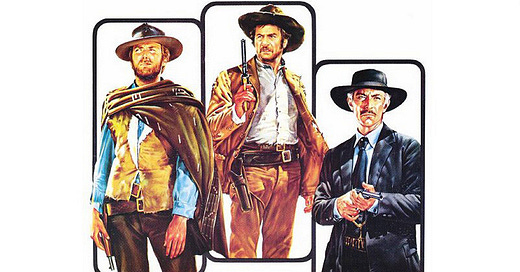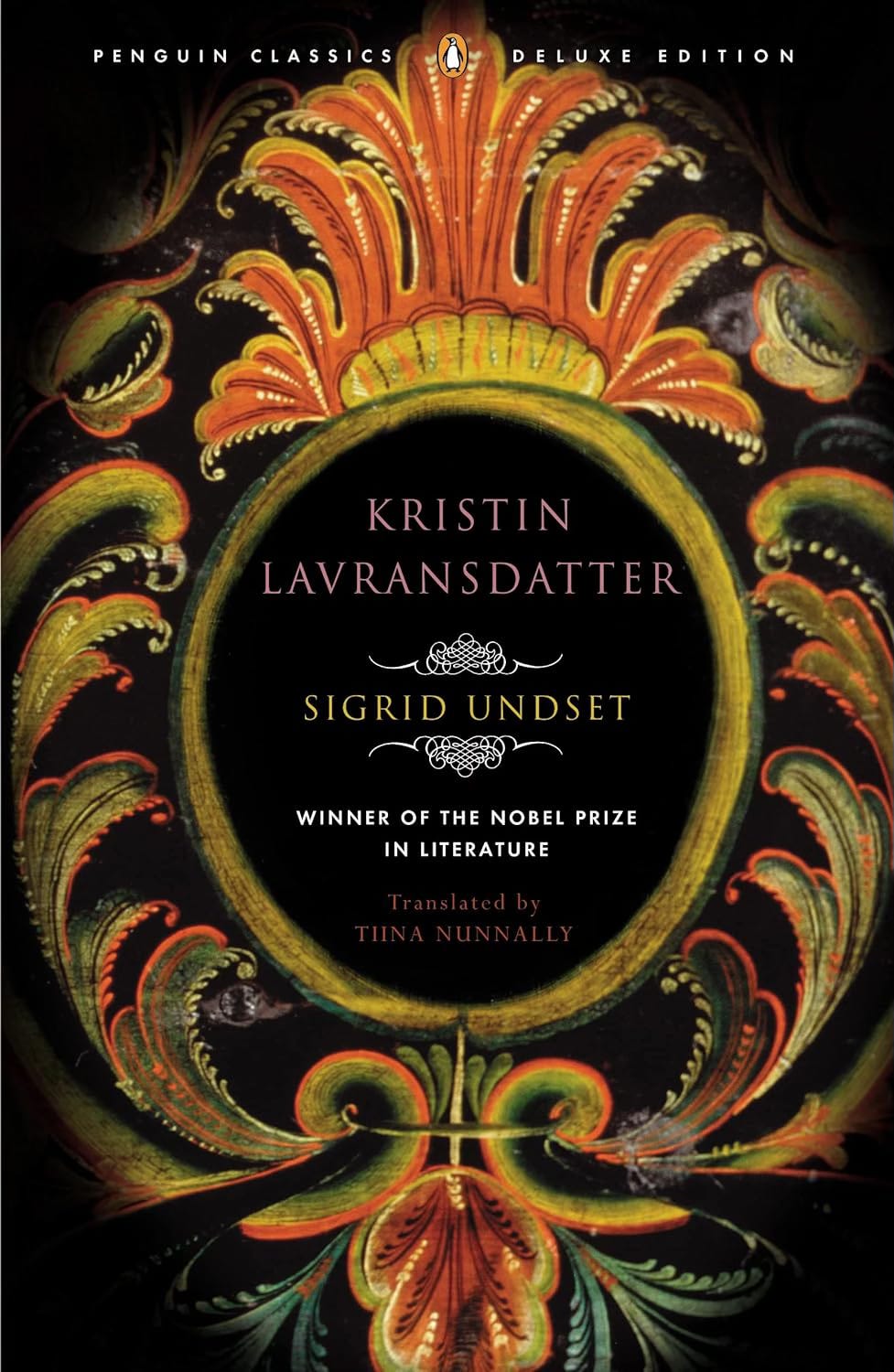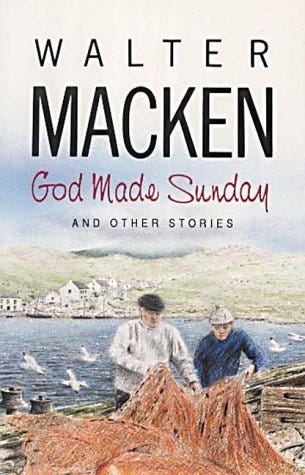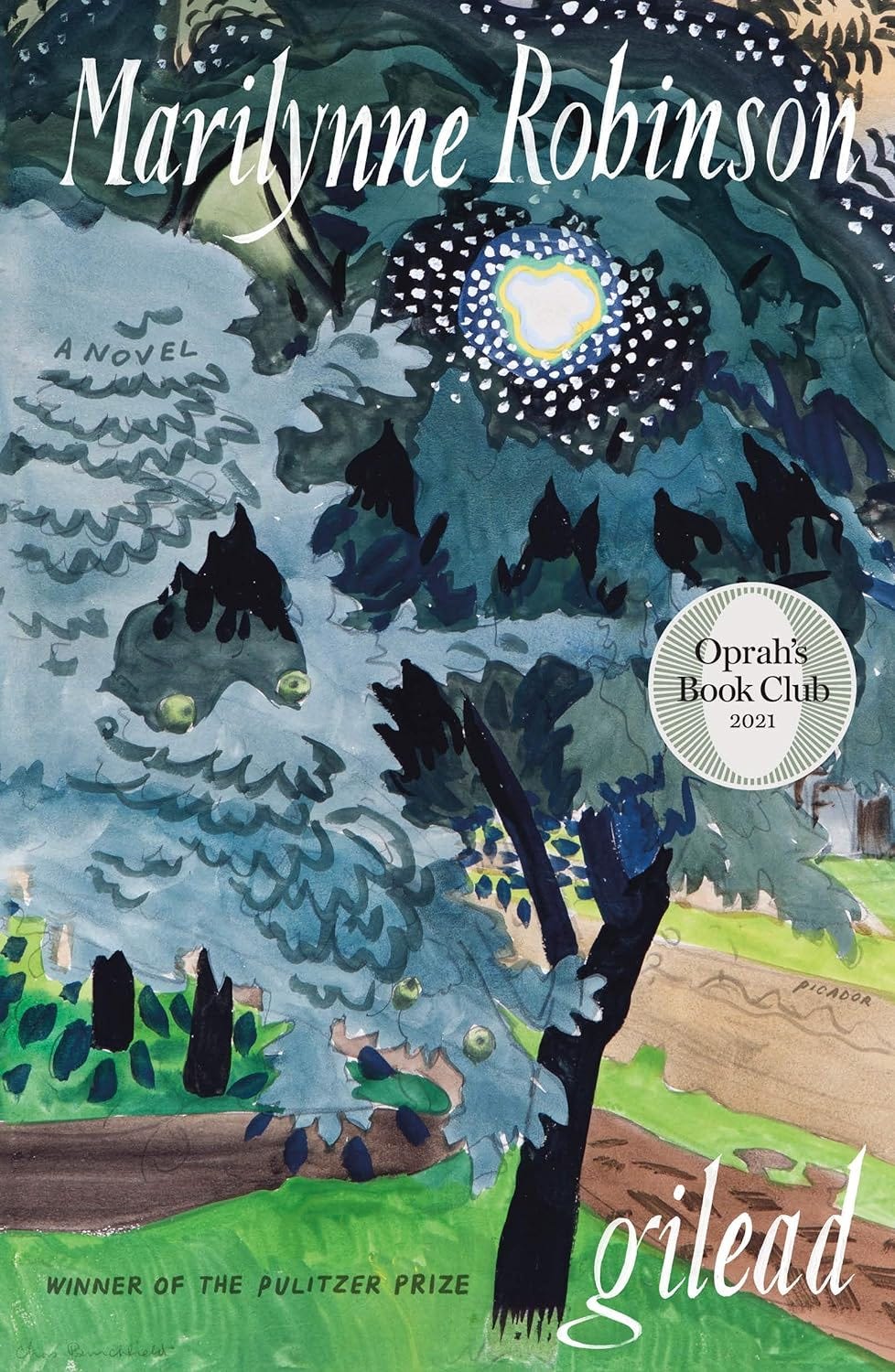The Good Good, the Good Bad, the Bad Good, & the Bad Bad
Revisiting Book Categorization
Welcome to Reading Revisited, a place for friends to enjoy some good old-fashioned book chat while revisiting the truth, beauty, and goodness we’ve found in our favorite books.
Recently, I came upon one of the most delightful videos: Tuesdays with the Troubadours: Classics You Should Avoid. It is a joy. I felt like I got a window into today’s Inklings Club.
From these fine gent’s hilarious discussion, I learned Joseph Pearce’s four categories for books: the Good Good, the Good Bad, the Bad Good, and the Bad Bad. Let me share with you.
Pearce judges books on two criteria: (1) literary value, and (2) moral or philosophical value.
Thus, the great books are the Good Good books, which are good literature and good morality/philosophy (a truly triumphant achievement).
All other books fall into one of three remaining categories:
Good Bad books, which are good literature but bad morality/philosophy (just shy of perfect);
Bad Good books, which are bad literature but good morality/philosophy (these can be rather ridiculous);
and Bad Bad books, which are bad literature and bad morality/philosophy (no reason to even look at ‘em).
For the fun of it, let’s talk examples, revisiting books we’ve read together.
Good Good Books
Where to start? How to choose? The goal for any self-respecting book club surely would be to have only Good Good books on it’s list. In order to be brief, I’ve chosen one book from each of the previous book club years, and provided an excerpt to display its literary quality and sound morality and philosophy.
Good Good Book of 2020-2021: Kristin Lavransdatter
She opened her eyes and looked at the ring lying in the dark palm of the smith. And her tears burst forth in torrents, for she felt as if she had never before fully understood what it signified. The life to which this ring had married her, over which she had complained and grumbled, raged and rebelled. And yet she had loved it so, rejoicing over it, with both the bad and the good, so that there was not a single day she would have given back to God without lament or a single sorrow she would have relinquished without regret (1121).
Good Good Book of 2021-2022: Til We Have Faces
The complaint was the answer. To have heard myself making it was to be answered. Lightly men talk of saying what they mean. Often when he was teaching me to write in Greek the Fox would say, ‘Child, to say the very thing you really mean, the whole of it, nothing more or less or other than what you really mean; that’s the whole art and joy of words.’ A glib saying. When the time comes to you at which you will be forced at last to utter the speech which has lain at the centre of your soul for years, which you have, all that time, idiot-like, been saying over and over, you’ll not talk about the joy of words. I saw well why the gods do not speak to us openly, nor let us answer. Till that word can be dug out of us, why should they hear the babble that we think we mean? How can they meet us face to face till we have faces? (335)
Good Good Book of 2022-2023: God Made Sunday
It was inevitable that the priest should have come after me. I knew this. I was his care, like everyone else. It was his duty. I wouldn’t have respected him if he hadn’t. I was going long-lining, when he stood on the pier…He said many things later. He said, You are nursing your sorrow, Colmain, like a mother nursing a child beyond the time when it should be taken from the breast and given solid food. I couldn’t see this. I said, You are wrong. I no longer feel sorrow. How can I nurse what I do not feel? He said, Do you not feel God is to blame then for the things that have happened to you? I said, No, I do not, because I am now aware that God does not exist…The idea of God is a necessity for the mind, but the idea is as unreal as the colour of the sky or the lake or the sea. O, Colmain, he said. (Friday)
Good Good Book of 2023-2024: The Innocence of Father Brown
“You call it unusual, and so do I,” said [Father Brown], “and yet we mean quite opposite things. The modern mind always mixes up two different ideas: mystery in the sense of what is marvelous, and mystery in the sense of what is complicated. That is half its difficulty about miracles. A miracle is startling, but it is simple. It is simple because it is a miracle. It is power coming directly from God (or the devil) instead of indirectly through nature or human wills. (“The Wrong Shape,” 93)
And the honorable mentions are: pretty much all the rest of the books… Now on to less rah-rah categories.
Good Bad Books
First I will echo the Troubadours and place an incredibly respected classic into this category, this way when I place one of our own books here, it will feel like it’s in excellent company.
So, as much as it pains me to say it, Paradise Lost is a prime example of a Good Bad book. Frankly, it was a bit of a relief to hear the Troubadours assert this, because I love this epic, but it doesn’t love me back, it can’t, it’s too coldly wrapped up in itself.
(Paradise Lost: The Fall of the Rebel Angels - Gustave Dore - 1866)
First, the good. The writing is (dare I say it, how can I not?) epic. Let’s read a justifiably famous passage of lines. It’s a quarter of the way into Book I, and Satan has just arisen from the pool of fire where he was cast down after his rebellion against God, and he says:
hail horrors, hail
Infernal world, and thou profoundest Hell
Receive thy new possessor: one who brings
A mind not to be changed by place or time.
The mind is its own place, and in itself
Can make a Heav’n of Hell, a Hell of Heav’n.
(Book I, 250-255)
And, please follow this thought into Book IV, with a description of Satan:
And like a devilish engine back recoils
Upon himself; horror and doubt distract
His troubled thoughts, and from the bottom stir
The Hell within him, for within him Hell
He brings, and round about him, nor from Hell
One step no more than from himself can fly
By change of place
(Book IV, 17-23)
…
Which way I fly is Hell; myself am Hell
(Book IV, 75)
I’ve penciled that one line “The Hell within him, for within him Hell’ into the margins of nearly every single book I’ve read in the last decade, without even trying. If I pressed myself, I’d been willing to wager that I could find this idea, that a mind can make a Hell within oneself, that a mind can torture itself into nothingness, that a Man (or Angel) can fabricate his own inner world to such a concrete extent that it becomes the only reality he knows, in every great work of literature. It’s a terrifying power.
Better to reign in Hell, than serve in Heav’n.
(Book I, 263)
You can’t get more diabolical. Lewis captured the devilish wit of tempters1, Milton displayed the infernal passion of Hell.
But thus far and no further… Paradise Lost fails epically with the person of Christ. Milton’s characterization of Jesus is just lame. It’s flat, and despite being very bright, is still very flat, and when I was in a place of beginning to live my faith less (because I was beginning to justify wrong actions) it made me doubt that God was worth knowing. That’s pretty bad. Like epically bad. Let’s let Pearce say it better. “Milton became so heterodox, denying the Trinity and the true divinity of Christ, that it is arguable that he cannot justifiably be called a Protestant or even a Christian in any true sense of the word…Milton’s God is not the Trinitarian God of the Christians but a Unitarian God whose Son is a mere creature” (Literature What Every Catholic Should Know, 79,81).
Paradise Lost is a very Good Bad book.
Now, to revisit a book of our own. I’m going to place Gilead into this Good Bad Book category.
Gilead is here because of an insightful comment from a fellow book club member. Before she made her comment, I loved the calm, deep wisdom imbued by the beautifully drawn narrator.
I really can’t tell what’s beautiful anymore. I passed two young fellows on the street the other day. I know who they are, they work at the garage. They’re not churchgoing, either one of them, just decent rascally young fellows who have to be joking all the time, and there they were, propped against the garage wall in the sunshine, lighting up their cigarettes. They’re always so black with grease and so strong with gasoline I don’t know why they don’t catch fire themselves. They were passing remarks back and forth the way they do and laughing that wicked way they have. And it seemed beautiful to me. It is an amazing thing to watch people laugh, the way it sort of takes them over. Sometimes they really do struggle with it. I see that in church often enough. So I wonder what it is and where it comes from, and I wonder what it expends out of your system, so that you have to do it till you’re done, like crying in a way, I suppose, except that laughter is much more easily spent. (5)
This gentle, kind pastor’s voice captured me, and I wandered along all his meandering thoughts, happy that he’d gotten to this place of all-encompassing charity. But, that friend at bookclub said something that’s made me relegate this book here, as a Good Bad book. She said (I paraphrase), “The problem with this book is that there’s not a person who wouldn’t like it. It appeals to everyone. It takes no stance. It’s theology is flowy and open and able to be interpreted. It’s relative.” And I think she’s probably right. This book comes so close to providing just the tiniest bit more substance, which would then firm up its moral trajectory.2 But, I couldn’t find it during that first reading. So, sadly, humbly, here it sits, as a good work of literature, but a bad work of morality and philosophy. Feel free to help it up.
Bad Good Books
I’ll be quick about this category and say it probably includes many "Christian Fiction” works. And unfortunately, a lot of these could probably slip down to the Bad Bad Books category since not only is their literary value pretty rough, but I’m sure the philosophy is pretty shaky. But honestly, I’m going off of hearsay here; I don’t read these books. But, perhaps they weren’t set up for success. To paraphrase Peter Kreeft in an interview with Matt Fradd on Pints with Aquinas, “One of the signs that Jesus is who He says He is, is that there’s no good fiction about Him. It just can’t be done.”
Bad Bad Books
Now, here’s where we could have a lot of fun playing expert. But, it is too easy to find flaws. Therefore, I will restrict myself to only critiquing a book I have called out before in How (I think) I Read: Where the Crawdads Sing.
Let me first give Crawdads credit, and say that this book has been greatly enjoyed by a lot of people, including people I love and respect, deeply. I didn’t pick especially low-hanging fruit for this category, as this is a book people could fight my on, at least three of whom are in my own family. Therefore, what is captivating in it? For me: the beginning. The descriptions of the marsh are lovely, and the main character, Kya, is endearing. The details about plant and animal life are stunning. Additionally, the story is good, in the sense that you care about what happens and want to get to the end. There was potential.
Why it’s bad literature: It completely fails in writing multidimensional characters or good dialogue.
Flat characters: Tate and Chase, are the two interests in the love triangle. The former is the cliché good guy, the latter is the cliché bad guy. No nuance. Of the two, Tate is drawn better, though still flat. (The random part about Tate dating other girls in college, but always loving Kya, felt forced and out of character.) Chase Andrews is hopelessly flat. He’s a football star who Kya first sees shirtless while playing catch on the beach with the popular kids…In the movie, there were hints at a nuanced character because of the left-open-question of: why did he always wear Kya’s necklace? But this was not developed in the book.
Stilted dialogue: In a scene between Tate and his dad, it’s Disney-channel-eye-rolling bad. “I’m your dad, I’m supposed to say things like this,” said no dad ever. Dialogue in this book is often used to move the plot along, but fails (from my reading) at character development.
Why it’s bad morality: the protagonist (spoiler!) commits premeditated murder and gets away with it…completely (i.e. she is not condemned by the law, her own conscience, or the author). In the movie, it was slightly more forgivable because the condensed events meant the murder occurred within days of the triggering event. In the book, months went by…months of planning…before the murder. When reading, I held out to the end, waiting to see if Owens would understand Kya as Shakespeare understood Macbeth; she didn’t. The moral of the story seems to be: good guys are justified in getting rid of bad guys, especially if the good guy is a girl living in a marsh.
To end on a positive note: the story keeps you reading. Which just goes to confirm: good plot can carry you a long way, but not, in this case, out of the Bad Bad Book category.
Well, that’s a wrap! Hope it was fun! Hopefully you don’t find any but the Good Good books here, at Reading Revisited. However, if every so often a Good Bad book does make the list, enjoy the very stimulating conversation bound to follow! All is not lost if the perfect Good Good Book list is not achieved.
Next up we have East of Eden by John Steinbeck. Below is the reading schedule. (It’s a 600 page book, so plan ahead because you don’t want to miss this American masterpiece!)
June 19 - Part One ( ~125pgs)
June 26 - Part Two (~140 pgs)
July 3 - Part Three (~130 pgs)
July 10 - Part Four (~190pgs)
Happy Reading!
Until next time, keep revisiting the good books that enrich your life and nourish your soul.
In Case You Missed It
The Remains of the Day-Final Thoughts (and discussion questions) by
Our first ever Reading Revisited Podcast with Hannah Suire interviewing Kelsie Hartley about her “Bookish Bio”
A Few Reminders
If you are wanting to get in on the in person or virtual community please contact us!
Book lists from previous years can be found here.
*As always, some of the links are affiliate links. If you don’t have the books yet and are planning to buy them, I appreciate you using the links. The few cents earned with each purchase you make after clicking links (at no extra cost to you) goes toward the time and effort it takes to keep Reading Revisited running and I appreciate it!
Unlike Rebecca, Gilead feels like it is trying to impart a moral. Sin and the Gothic Novel, very aptly recognized that to read Rebecca as a “how to do life” manual, is to not understand the genre, or the book. Gilead, however, falls into a different genre: the memory novel. And this genre, with this narrator, lends a reader to look for moral insights.














I loved reading about these categories, I’m going to have fun thinking about what books I have that fall into which ones. I think there might also be room for “middling” versions of some of the categories-books that have a mix of good/bad philosophy or speak to some moral truths while falling on others (I think a lot of more modern fiction can fall into this category) or books that are ok/not bad on the literary level but not as good as, say, Austen, if that makes sense. It’s a discernment question I often find myself asking with contemporary literature and movies/TV, is there enough good going on (either in terms of quality and/or morality) to warrant consuming the imperfect (either on terms of morality/quality)